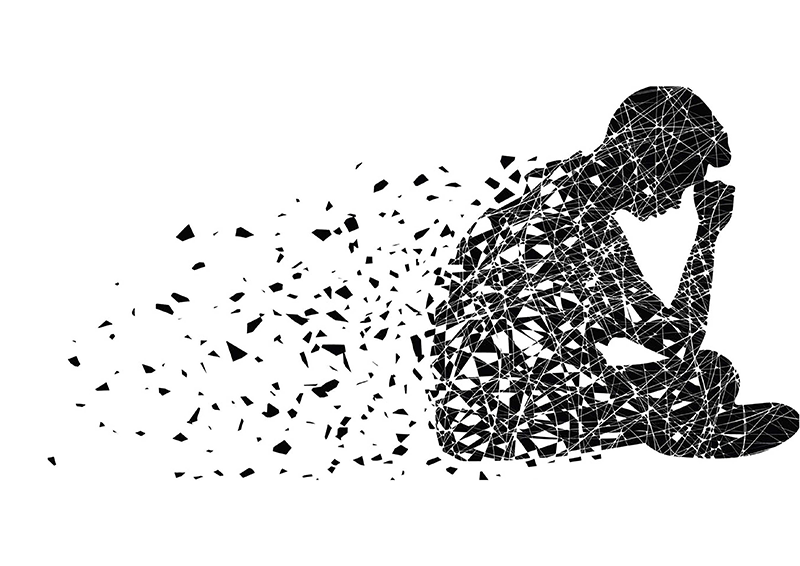There is still much unknown about the long-term health implications for patients who have had the most severe forms of Covid-19, but it is becoming clear that the novel coronavirus can have affects on the brain that may require rehabilitation to aid recovery. Ruth Smith, CEO of Active Care Group and its Christchurch Group division, discusses how it has been working to help rehabilitate patients once they have cleared the initial infection
According to Statista, as of 28 September 2020, the outbreak of the coronavirus disease (Covid-19) has been confirmed in over 210 countries or territories. The virus has infected around 33.3 million people worldwide, and the number of deaths has totalled more than
one million. The most severely affected countries include the US, Brazil and the UK.
Worldwide, the advance of the pandemic has led to an unprecedented demand for intensive care and post-Covid rehabilitation services. According to the University of Bristol and Royal United Hospitals Bath NHS Trust the only positive development is that ‘as the pandemic has progressed and various factors combine, survival of patients admitted to ICU has significantly improved’.
Now more than ever it is vital that critical care and specialist rehabilitation teams work together closely to develop and share with others rehabilitation pathways for patients who are recovering following treatment in intensive care.
How does Covid affect the brain?
Covid is a multi-systemic condition and affects many organs in the body including the brain. Conditions include:
- Cognitive impairment – trouble remembering, learning new things, concentrating, or making decisions that affect everyday life
- Acute confusional state and delirium – a condition that is particularly prevalent after leaving intensive care encompassing disturbances in attention, consciousness, and cognition
- Psychosis – delusions, and confused and disturbed thoughts
- Hallucinations
- Anxiety
- Adjustment disorder – stress, feeling sad or hopeless, and physical symptoms that present themselves after this stressful life event, which occur because the patient is unable to cope
- Post traumatic stress which can trigger:
Intense feelings of distress when patients are reminded of their traumatic experience with Covid
Extreme physical reactions to reminders of the trauma such as a nausea, sweating or pounding of the heart
Invasive, upsetting memories of that illness
Flashbacks – involuntary recurrent memories in which they re-experience the trauma that has befallen them
- Nightmares
- Loss of interest in life and daily activities
- Emotional numbness and detachment from other people
- Inability to view the future with a positive outlook
- Avoidance of activities, feelings, thoughts or places that remind that patient of this life changing illness
- Difficulty remembering important aspects of that traumatic event
What does post-acute neurorehabilitation encompass?
At Christchurch Group, our aim is to maximise independence and recovery, equipping patients with the skills to return home or to a supported environment and to meet rehabilitation goals that promote re-enablement and enhance quality of life.
The process for Covid patients commences with a multi-disciplinary assessment before they have left critical care and transitioned to post-acute services.
Evidence consistently demonstrates that neurorehabilitation carried out by an interdisciplinary team results in the best outcomes for patients with brain and neurological conditions. This is why such assessments and the resultant rehabilitation programmes are conducted by our expert multi-disciplinary rehabilitation teams including consultants in rehabilitation medicine, clinical neuropsychologists, rehabilitation nurses, physiotherapists,
occupation therapists, speech and language therapists, therapy technicians, and specially trained rehabilitation assistants.
Factors we consider that may affect an individual’s rehabilitation include:
- Personal and environmental circumstances
- Co-morbidities
- Pre-morbid functional abilities
- Psychological mindset, e.g. previous coping mechanisms, self efficacy and resilience
- The home environment or place to which that individual will be discharged
- Individual social context and their economic circumstances
- Occupation, whether paid, ‘informal’ or voluntary work
We also consider physical complications in patients recovering from Covid-19 including diabetes, obesity, fatigue and cardiovascular issues.
On completion of the assessment and transfer of the patient to our post-acute services, treatment and management begins to maximise physical functioning, cognitive ability and social and psychological wellbeing. Our goal is to optimise the patient’s quality of life and reintegrate them back into their lives, following a period of inpatient rehabilitation within our units.
IT IS VITAL THAT
CRITICAL CARE
AND SPECIALIST
REHABILITATION
TEAMS WORK
TOGETHER
Brain injury places enormous stress on the patient’s family too and we work with them to ensure that they too surround themselves with a strong support network and that their expectations are managed carefully in terms of the speed and level of recovery that can be achieved. It’s about being on a journey together and supporting one another throughout.
Our patients and NHS commissioners receive a discharge report clearly outlining achievements and featuring quantitative data.
Special provision regarding working practices
Covid is a particularly virulent virus and one that demands a high level of prevention and infection control in a post-acute environment like ours – the foundation of which is to assume that everyone is potentially infectious.
Risk assessments are conducted on a regular and ongoing basis – as an individual, a working group and in the workplace. If, for example, we receive masks that are not safe, we call NHS England and Public Health England, escalate it and seek advice.
Within our premises we ensure the meticulous cleaning of patient equipment between each patient; decontamination of all equipment and surfaces and regular cleaning and decontamination of ventilation ducts. Large, highly visible signage at the entry to wards prevent unauthorised personnel entering high risk zones and all visitors are prohibited from entry – except maintenance staff who, like medical staff, must be tested and don PPE when entering high risk zones.
Strict rules are also applied to staff working in the community. Mandatory practice includes exercising optimal hand hygiene; using hand rub that contains at least 60% alcohol when soap and water is not accessible; two-metre social distancing; donning of aprons, fluid repellent gowns, gloves, a surgical mask and eye protection and qualitative fit testing.
Looking after the wellbeing of staff, thanking them regularly for going that extra mile and providing support at all times is a key priority. On a practical level, we ensure that fresh cold water is readily available to keep them hydrated and that face and hand creams are provided to protect them from pressure sores caused by masks and sore hands caused by
repeated washing.
Openness and transparency are actively encouraged because it is important that staff keep senior leaders well informed – e.g. if their husband or wife has developed symptoms of Covid – high temperature, loss of taste and smell etc so appropriate action can be taken and contagion limited.
Looking to the future
Hospitals and medical staff across the UK are currently bracing themselves for the second wave of Covid predicted to hit in October 2020. Every day we are learning new things – it is of paramount importance that we continue to share our experiences with others so we can effectively tackle this world pandemic together.








 ©2024 All rights reserved LaingBuisson
©2024 All rights reserved LaingBuisson 


